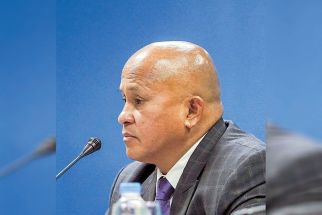PNP admits human rights abuses
MANILA, Philippines - The Philippine National Police (PNP) yesterday admitted that there are human rights abuses in the organization but has assured the public that it is not tolerating such abuses and is now in the process of cleansing its ranks.
“We have been very transparent. We always investigate whether they are borne out of complaints or moto propio. We do not tolerate human rights abuses. We have to cleanse our ranks immediately to serve as lesson to others,” said PNP spokesman Chief Superintendent Leonardo Espina.
“There are really infractions. We cannot hide that. But we investigate them immediately since we don’t tolerate human rights abuses among our ranks because it’s illegal and a flagrant violation of our law,” he added.
The US State Department, in its latest human rights report, said the PNP has deep-rooted institutional deficiencies and has suffered from a widely held and apparently accurate public perception that corruption remains a problem.
Although there were efforts to reform and professionalize the institution through improved training, expanded community outreach, and pay raises, the 2009 Country Report in Human Rights Practices said the PNP’s Internal Affairs Service remained largely ineffective.
“Members of the PNP were regularly accused of torture, soliciting bribes, and other illegal acts,” the report said.
Last year, 177 administrative cases were filed against members of the police force, including administrative officials and police officers, for various human rights violations.
Of the 177 cases filed, 137 were resolved and 40 were undergoing summary proceedings by the end of 2009.
In response to these cases, the PNP dismissed 240 of its personnel.
The deputy ombudsman for the military received 71 cases involving alleged human rights abuses by the military and law enforcement officers during the year, a majority of which were filed against low-ranking police and military officials.
The State Department said the report that covers 194 countries is the single-most exhaustive and comprehensive compilation of information about human rights in the world.
The US government compiled the reports for the past 34 years pursuant to a requirement placed on the US executive by law, in part to help the US Congress inform its work in assessing requests for US foreign military and economic assistance, as well as to set trade policies and US participation in the multilateral development banks and other financial institutions.
- Latest
- Trending



























